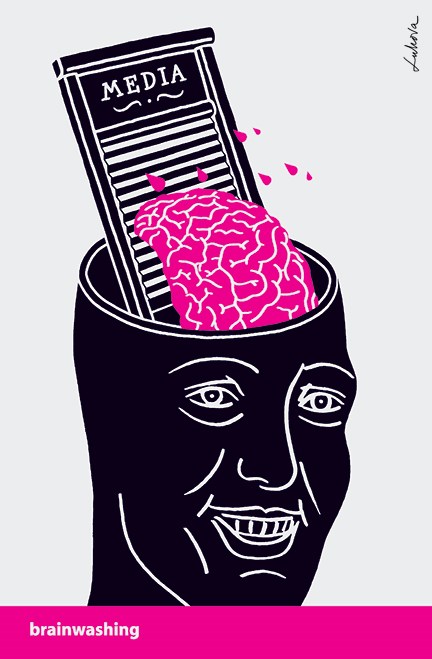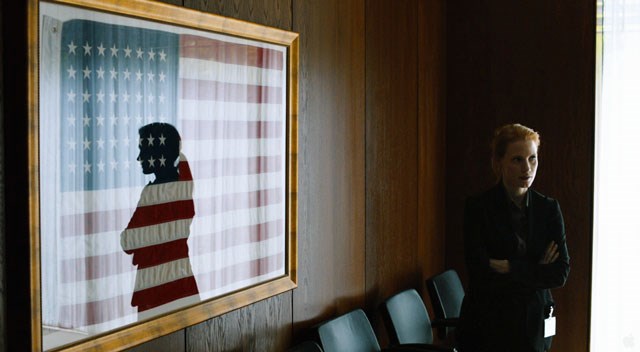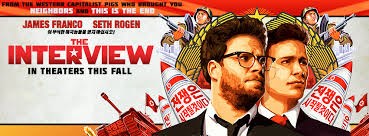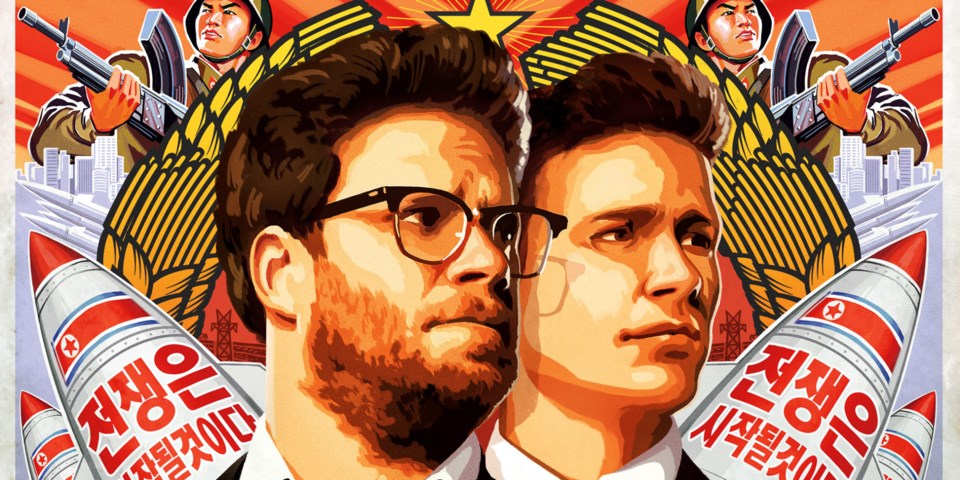This is a year-end reflection on just who is free to express exactly what.

Two years ago, at Christmas-time, Sony Pictures also released a movie into a storm of controversy. This season's holiday treat, "The Interview" is a "comedy" featuring the on-screen, C.I.A. instigated assassination of Kim-Jong-un, North Korea's president—as if it would be a good idea.
2013's "Zero Dark Thirty," about the capture and murder of Osama bin Laden, made the false point that torture works.
Both Sony films depict and promote State Department and C.I.A. narratives, and were vetted and approved by those government agencies—yet, the truth of each narrative is questionable, at best, and their effect on audience understanding of history is frightening.
"Zero Dark Thirty" dramatized the fiction that the torture of a detainee provided information crucial to learning bin Laden's whereabouts, hidden in plain sight, as it were, in a military town in Pakistan. This supposition that "torture works," dear to the hearts of the proponents of the U.S. torture program, like Vice President "I would do it again in a minute" Dick Cheney, is false—proven so once again by the recently released Senate Torture Report.
Crucial intelligence about bin Laden's whereabouts was gained by lawful interrogation. Torture which is patently illegal and obviously immoral also happens to be worthless as a way of gaining accurate information; those being tortured are more than likely to say anything. "Zero Dark Thirty" based its female heroine on the now-revealed "queen of torture" Alfreda Frances Bikowsky, supposedly tireless in her efforts to capture bin Laden but who actually tortured innocents, lied to Congress and previously had dropped the ball on evidence that might have helped prevent the 9/11 attacks.
But Sony Pictures' "Zero Dark Thirty" chose to heroicise the C.I.A's preferred lies in defense of its torture program rather than tell the truth. Its screenwriter, Mark Boal, attended C.I.A. meetings where he heard the official line; then, with the agency's approval, he wrote it into his script.

"The Interview's" screw ball narrative holds that the best way to achieve "regime change" in North Korea would be to assassinate Kim Jong-un. This is a point-of-view supported by the State Department and the Rand Corporation, a defense department think-tank. Sony's CEO sits on the board of the Rand Corporation and is privy, therefore, to Rand's policy positions, plus being in a position as film financier to promote them widely.

According to Christine Hong, a Korea expert, speaking on Democracy Now, Sony executives "consulted very closely with the State Department, which actually gave the executives a green light with regard to the death scene. And they also consulted with a Rand North Korea watcher, a man named Bruce Bennett, who basically has espoused the thesis that the way to bring down the North Korean government is to assassinate the leadership."
Once, again at Christmas time, the movie-going public is being fed a dangerous fantasy—assassination on the big screen, in glowing Technicolor of a hostile head of state. The film, at first withdrawn, is now available for viewing in independent theaters or at home. And all the publicity around it has whetted the appetites of many to indulge.
In the same week as the flap over "The Interview", we've been told by Pat Lynch, the aptly named head of the PBA that the Mayor of New York City, Bill DeBlasio, has "blood on his hands", because he allowed New Yorkers to gather in peaceful protests against the recent non-indictment of police officers who murdered unarmed black men.
We are being told by Hollywood stars that the withdrawal of "The Interview" from wide release is an attack on free expression and free speech, and that, now, its release in independent theaters around the country in time for Christmas is proof of our abiding commitment to such freedoms—even while it seems increasingly likely that the hack of Sony emails was an inside job and that North Korea had nothing to do with it. Nevertheless, Americans will now be able to watch, in blazing Technicolor, the President of a hostile and nuclear armed state, having his head blown apart. And we are supposed to laugh.
Can there be "free expression" when the production of so-called entertainment is achieved through such a cozying up between powerful government agencies promoting torture and assassination and the producers of cinema?
Who is the real instigator of a violent, gun-crazed America in which a man with a long history of arrests and mental illness, a dangerous man, loose without supervision or help, is easily able to acquire a gun and shoot three people—his girlfriend and, fatally, two New York City police officers. Is it the peaceful protestors who have filled our streets by the thousands? Is it Bill DeBlasio who has well-founded worries about his biracial son's potential encounters with the police?
Or dare we offer up an indictment of our violent and government-policy influenced media, with a special nod this holiday season to Sony Pictures—making money off the false narratives that torture works and that brutal assassination of our enemies is a laugh-riot? (After all, violent regime change worked so well in Iraq—shining example, today, of a crushed and failed state.)
We do ourselves a disservice if we believe that media and mass entertainment are not being used to the detriment of the public good in the United States today. It's a form of mass-market brain-washing, isn't it? And we are expected to pay money to be seduced.




